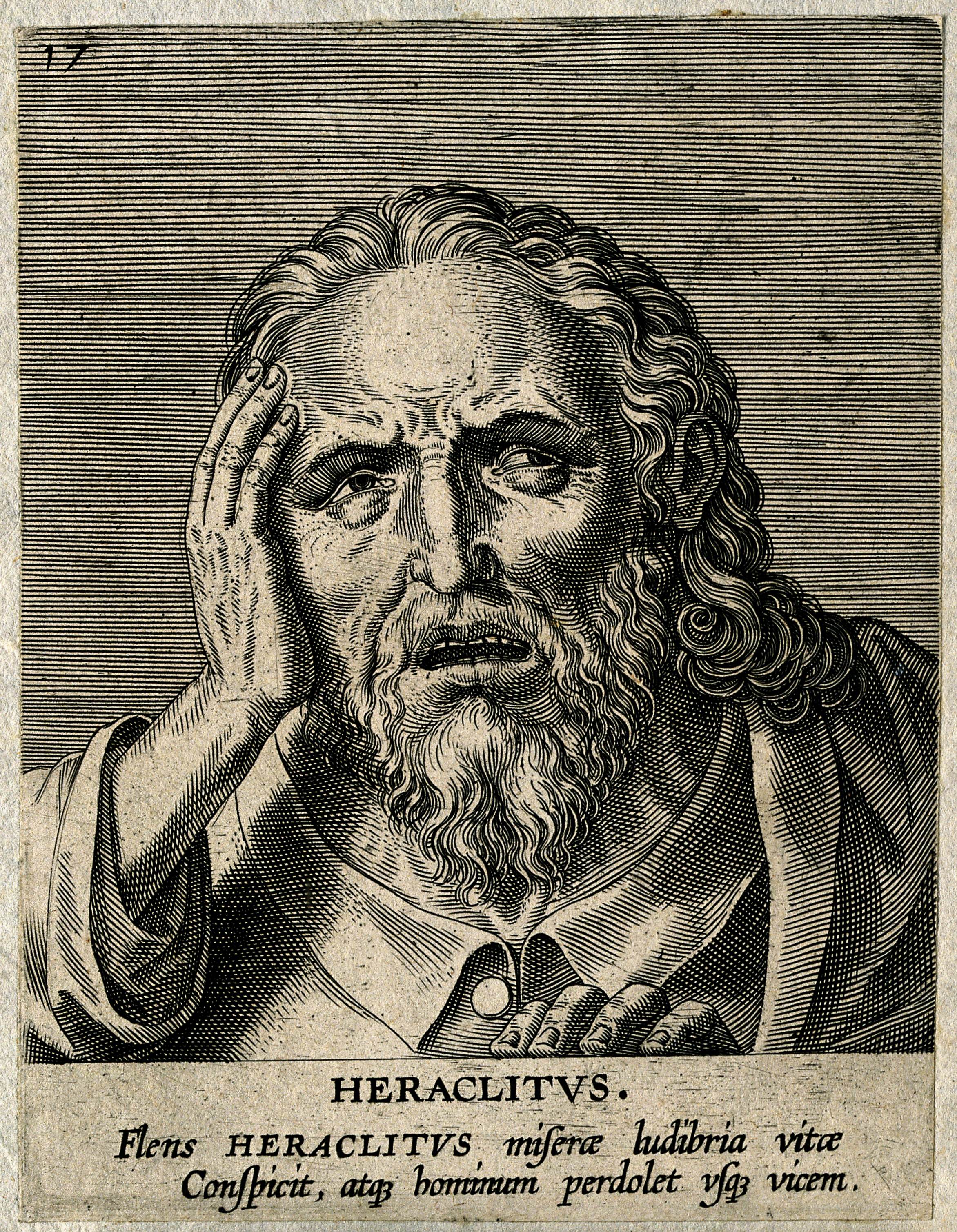Reference




OpenAI's Answer
Heraclitus, an ancient Greek philosopher, was known for his profound and often enigmatic philosophical contributions. His contemporaries, as well as later philosophers, had varied perceptions of his ideas and writing style.
-
Understanding and Reception: His contemporaries often found Heraclitus’s philosophical ideas challenging and controversial. He was known for his doctrine of constant change, famously summed up by the phrase "You cannot step into the same river twice." His belief in the unity of opposites and the idea that fire is the fundamental essence of the universe were revolutionary and not easily digestible for many of his peers (Stanford Encyclopedia of Philosophy).
-
Writing Style: Heraclitus's writing style was equally perplexing. He employed a cryptic, aphoristic style, often condensed into short, paradoxical statements. This made his work open to various interpretations and difficult for many to comprehend. He was sometimes referred to as the "dark" philosopher because of the obscurity and complexity of his writings (World History Encyclopedia).
-
Criticism from Contemporaries: Many of his contemporaries criticized or misunderstood his work. They viewed his critiques of their own philosophies as harsh and his expressions as needlessly obscure. This contributed to a perception of him as a figure who was ahead of his time, but also isolated by his unique perspectives and style (Internet Encyclopedia of Philosophy).

In summary, Heraclitus's contemporaries perceived his philosophical ideas as groundbreaking yet difficult to grasp. His writing style compounded this difficulty, making his profound ideas less accessible and earning him a reputation for being one of the more enigmatic philosophers of his time.
Follow Up
Related
How does Holmes's interpretation of John Dewey's ethical thought differ from contemporary perspectiv
Which Gatineau station focuses on soft adult contemporary music?
Which works by contemporary composers have won the Gaudeamus International Composers Award?
Which station in Trois-Rivières offers adult contemporary music in French?